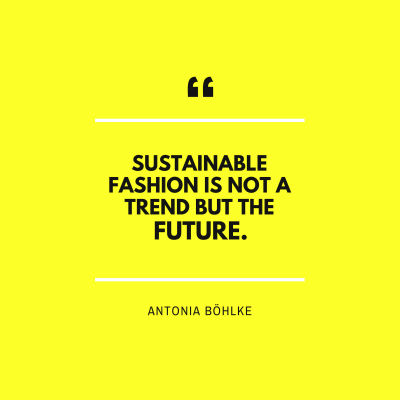COMU3150 – Assessment 1 Video Script
If this video has reached on your ‘For you’ page today it’s probably because you too, have found a new love for online shopping whilst being stuck in lockdown. If you have been supporting the fast fashion industry throughout the pandemic or are familiar with brands such as ASOS, Shein, Victoria Secret, Uniqlo or Fashion Nova I invite you to reconsider your shopping choices.
 The push towards promotional culture in today`s world is becoming increasingly evident as individuals instil their trust into social media marketing to bring forward the latest news, trends and styles. Individuals and organisations have become more promotionally orientated and social media plays a key role.
The push towards promotional culture in today`s world is becoming increasingly evident as individuals instil their trust into social media marketing to bring forward the latest news, trends and styles. Individuals and organisations have become more promotionally orientated and social media plays a key role.
 When it comes to fast fashion, although the anti-fast fashion movement has seen rapid growth in recent years, the outburst of COVID-19 has brought to light just how far the industry has to go. For decades the mass production of clothing around the world has caused damaging effects that harm both the environment and the lives of garment workers, yet we are constantly exposed to promotional content, that supports the fast fashion industry. Clothing hauls, Instagram stories, reels and unboxing videos are just a few examples of how the promotional culture of fast fashion is transmitted into social media.
When it comes to fast fashion, although the anti-fast fashion movement has seen rapid growth in recent years, the outburst of COVID-19 has brought to light just how far the industry has to go. For decades the mass production of clothing around the world has caused damaging effects that harm both the environment and the lives of garment workers, yet we are constantly exposed to promotional content, that supports the fast fashion industry. Clothing hauls, Instagram stories, reels and unboxing videos are just a few examples of how the promotional culture of fast fashion is transmitted into social media.
 Throughout the pandemic, order cancellations, factory shutdowns and dismissals have all meant garment workers lives have been significantly impacted by the measures that large corporations have taken to protect themselves. An article from the Workers Rights Constitution last month revealed just how devastating the consequences of this have been, finding that 77% of garment workers reported that they or a member of their household had gone hungry since the start of the pandemic. Deprivation and hunger aren’t the only issues faced by garment workers during this time. What`s even worse is that many employees have been forced to work in unsafe conditions throughout the pandemic as the health of workers has remained a low priority. So, with all this being said here`s what you can do to reduce the harmful impacts of fast fashion. Firstly, buying less and wearing more. The most sustainable garments you can wear are those you already own. Reading the label. Petroleum based synthetic fibres like polyester require less water and land than cotton, but they emit more greenhouse gasses per kilogram. However, bio-based synthetic polymers made from renewable crops like corn and sugarcane release up to 60% less carbon emissions partly due to the crops creating carbon sinks. Finally, steering away from fast fashion labels and choosing brands that are committed to a sustainable future.
Throughout the pandemic, order cancellations, factory shutdowns and dismissals have all meant garment workers lives have been significantly impacted by the measures that large corporations have taken to protect themselves. An article from the Workers Rights Constitution last month revealed just how devastating the consequences of this have been, finding that 77% of garment workers reported that they or a member of their household had gone hungry since the start of the pandemic. Deprivation and hunger aren’t the only issues faced by garment workers during this time. What`s even worse is that many employees have been forced to work in unsafe conditions throughout the pandemic as the health of workers has remained a low priority. So, with all this being said here`s what you can do to reduce the harmful impacts of fast fashion. Firstly, buying less and wearing more. The most sustainable garments you can wear are those you already own. Reading the label. Petroleum based synthetic fibres like polyester require less water and land than cotton, but they emit more greenhouse gasses per kilogram. However, bio-based synthetic polymers made from renewable crops like corn and sugarcane release up to 60% less carbon emissions partly due to the crops creating carbon sinks. Finally, steering away from fast fashion labels and choosing brands that are committed to a sustainable future.

 The push towards promotional culture in today`s world is becoming increasingly evident as individuals instil their trust into social media marketing to bring forward the latest news, trends and styles. Individuals and organisations have become more promotionally orientated and social media plays a key role.
The push towards promotional culture in today`s world is becoming increasingly evident as individuals instil their trust into social media marketing to bring forward the latest news, trends and styles. Individuals and organisations have become more promotionally orientated and social media plays a key role.
 When it comes to fast fashion, although the anti-fast fashion movement has seen rapid growth in recent years, the outburst of COVID-19 has brought to light just how far the industry has to go. For decades the mass production of clothing around the world has caused damaging effects that harm both the environment and the lives of garment workers, yet we are constantly exposed to promotional content, that supports the fast fashion industry. Clothing hauls, Instagram stories, reels and unboxing videos are just a few examples of how the promotional culture of fast fashion is transmitted into social media.
When it comes to fast fashion, although the anti-fast fashion movement has seen rapid growth in recent years, the outburst of COVID-19 has brought to light just how far the industry has to go. For decades the mass production of clothing around the world has caused damaging effects that harm both the environment and the lives of garment workers, yet we are constantly exposed to promotional content, that supports the fast fashion industry. Clothing hauls, Instagram stories, reels and unboxing videos are just a few examples of how the promotional culture of fast fashion is transmitted into social media.
 Throughout the pandemic, order cancellations, factory shutdowns and dismissals have all meant garment workers lives have been significantly impacted by the measures that large corporations have taken to protect themselves. An article from the Workers Rights Constitution last month revealed just how devastating the consequences of this have been, finding that 77% of garment workers reported that they or a member of their household had gone hungry since the start of the pandemic. Deprivation and hunger aren’t the only issues faced by garment workers during this time. What`s even worse is that many employees have been forced to work in unsafe conditions throughout the pandemic as the health of workers has remained a low priority. So, with all this being said here`s what you can do to reduce the harmful impacts of fast fashion. Firstly, buying less and wearing more. The most sustainable garments you can wear are those you already own. Reading the label. Petroleum based synthetic fibres like polyester require less water and land than cotton, but they emit more greenhouse gasses per kilogram. However, bio-based synthetic polymers made from renewable crops like corn and sugarcane release up to 60% less carbon emissions partly due to the crops creating carbon sinks. Finally, steering away from fast fashion labels and choosing brands that are committed to a sustainable future.
Throughout the pandemic, order cancellations, factory shutdowns and dismissals have all meant garment workers lives have been significantly impacted by the measures that large corporations have taken to protect themselves. An article from the Workers Rights Constitution last month revealed just how devastating the consequences of this have been, finding that 77% of garment workers reported that they or a member of their household had gone hungry since the start of the pandemic. Deprivation and hunger aren’t the only issues faced by garment workers during this time. What`s even worse is that many employees have been forced to work in unsafe conditions throughout the pandemic as the health of workers has remained a low priority. So, with all this being said here`s what you can do to reduce the harmful impacts of fast fashion. Firstly, buying less and wearing more. The most sustainable garments you can wear are those you already own. Reading the label. Petroleum based synthetic fibres like polyester require less water and land than cotton, but they emit more greenhouse gasses per kilogram. However, bio-based synthetic polymers made from renewable crops like corn and sugarcane release up to 60% less carbon emissions partly due to the crops creating carbon sinks. Finally, steering away from fast fashion labels and choosing brands that are committed to a sustainable future.

